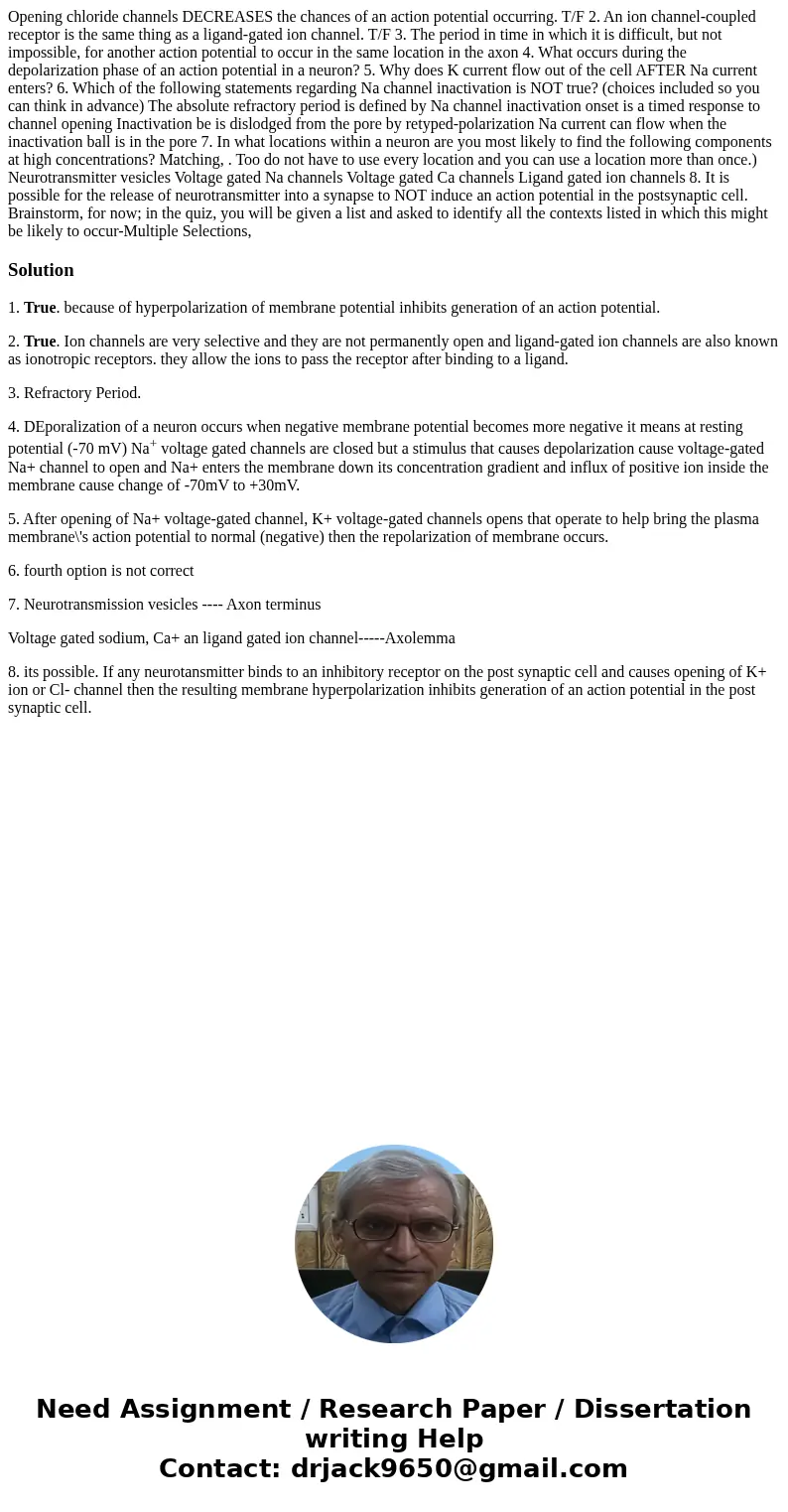Opening chloride channels DECREASES the chances of an action
Solution
1. True. because of hyperpolarization of membrane potential inhibits generation of an action potential.
2. True. Ion channels are very selective and they are not permanently open and ligand-gated ion channels are also known as ionotropic receptors. they allow the ions to pass the receptor after binding to a ligand.
3. Refractory Period.
4. DEporalization of a neuron occurs when negative membrane potential becomes more negative it means at resting potential (-70 mV) Na+ voltage gated channels are closed but a stimulus that causes depolarization cause voltage-gated Na+ channel to open and Na+ enters the membrane down its concentration gradient and influx of positive ion inside the membrane cause change of -70mV to +30mV.
5. After opening of Na+ voltage-gated channel, K+ voltage-gated channels opens that operate to help bring the plasma membrane\'s action potential to normal (negative) then the repolarization of membrane occurs.
6. fourth option is not correct
7. Neurotransmission vesicles ---- Axon terminus
Voltage gated sodium, Ca+ an ligand gated ion channel-----Axolemma
8. its possible. If any neurotansmitter binds to an inhibitory receptor on the post synaptic cell and causes opening of K+ ion or Cl- channel then the resulting membrane hyperpolarization inhibits generation of an action potential in the post synaptic cell.

 Homework Sourse
Homework Sourse